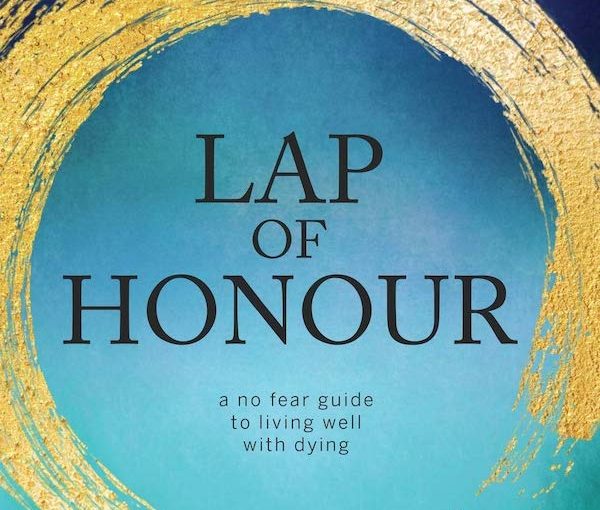Lap of Honour: A No Fear Guide to Living Well with Dying by Jewish community member Gaby Eirew and Dr. Pippa Hawley is not a new book – it was self-published in 2019 – but its subject matter is timeless. And, after almost two years of the pandemic, many of us have perhaps contemplated the fragility of our existence more than we otherwise would have. While the book talks about what we can do to live well with dying once we are diagnosed with a terminal illness, it’s probably better to read it before that happens, if we have the opportunity, as we’ll have other things to contend with at that point.
Being prepared for something generally reduces our anxiety about that something, no matter what it is – even death.
“When you have been diagnosed with an illness (or someone close to you has) you enter a rather unusual time,” write Eirew and Hawley. “Life’s finishing line might be drawing nearer, but you are still very much alive. This is a time of huge opportunity for warmth, connection and honesty. There are unknowns and inevitably there will be fears, yet once you have a sense of what to expect, fears can be much more manageable, and the personal growth often described by people in this situation can be maximized. There may be difficult conversations ahead, but if these are tackled with honesty and kindness, they can be uplifting.”
Eirew is a counselor and educator, and she created the Recordmenow app, which they recommend in the book as a way to leave messages for your loved ones – you record answers to questions that were derived from interviews of 100 people under the age of 16 who had lost a parent; questions the kids wished their parent had answered for them.
Hawley, a clinical professor and division head at the University of British Columbia, is a pioneer in palliative care, having founded several programs and models of care. She was the founder, for example, of the Bucket List Festival, which was a workshop for people facing end-of-life issues to meet others who were going through similar experiences and has been adapted to other scenarios.
The title of the book comes from the “finishing line” metaphor: “Some runners stop at the finish line. Others take their time, grab a flag, cheer with the crowd and feel the love back. They do a lap of honour, recognizing everything that brought them to this moment, all the events in their life and all the people who are key to them.”
The book has 16 chapters, some written by Hawley, some by Eirew. They touch upon numerous subjects, starting with the process of being diagnosed and receiving a prognosis, or a “best guess as to what will happen to an average person with your condition.” Despite its inherent uncertainty, you might want this prediction because it gives you an idea of what you might want to prioritize.
There are chapters on facing the unknown; on how to tell other people, including children, that you’re ill; on deciding on home, hospital or hospice care; on caring for the person caring for you; on health insurance and the costs that you might face; on celebrating your life; on accessing support services and groups; and more. In the chapter on what you should take into account if you decide to take that trip of a lifetime, to travel with an illness, Hawley highlights “a recurring theme in this book: let people help you.”
While the bulk of the work will still be up to you to do, Lap of Honour discusses almost everything, it seems, that you – and those who love you – will be feeling if you find yourself in this position. And it offers ways for you to “live your life to the very end … in the way that feels right for you.”
For more information, visit lapofhonourbook.com.

